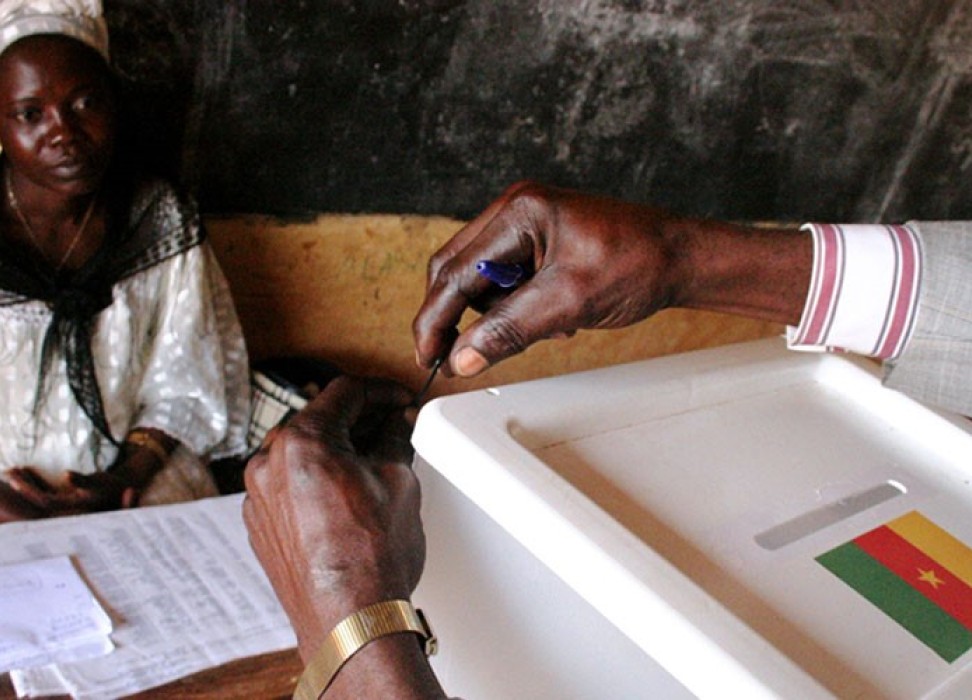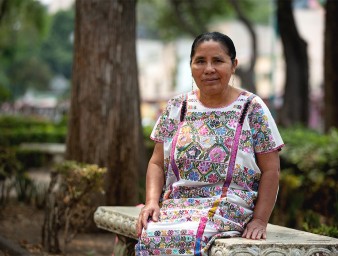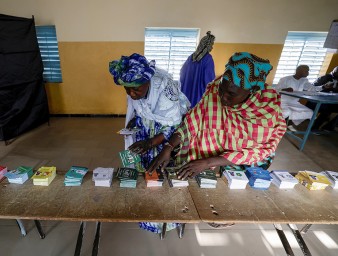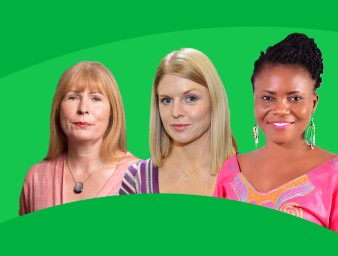Cameroon crisis: preventing the speech that incites violence
28 January 2020

Ahead of the February legislative and municipal elections in Cameroon, the UN Centre for Human Rights and Democracy in Central Africa - UN Human Rights' regional office - has held a yearlong series of partner consultations to devise a strategy to prevent and combat hate speech in that country.
Hate speech has been defined by the UN as any communication in speech, writing or behaviour that attacks or uses pejorative or discriminatory language with reference to someone's religion, ethnicity, nationality, race, colour, descent, gender or other identity factor.
The upcoming elections have been planned at a time when the crisis in the North-West and South-West regions of Cameroon has shown timid signs of a resolution. Politicians and media outlets have worsened the crisis by disseminating incendiary statements that have had a negative impact on the human rights of populations in those regions. Since October 2016, several thousands of people from the two regions have been displaced within Cameroon and to neighbouring Nigeria because of fighting between Cameroonian forces and opposing armed secessionist groups.
The efforts of UN Human Rights' regional office in Central Africa follow the adoption in Parliament of an amendment to the criminal code that criminalises hate speech and tribalism in Cameroon, and is in line with the UN Strategy and Action Plan on Hate Speech launched by the UN Secretary General, António Guterres, in June 2019.
"Peace and justice are at the heart of human rights and help reduce disparities in many areas. By putting in place early warning mechanisms based on human rights, our office wishes to align itself with the UN's global efforts to prevent and combat violence, marginalisation and discrimination," said Louis-Marie Bouaka, head of the regional office. "Our strategy also seeks to enable effective UN responses to the impact of hate speech on Cameroonian society."
Throughout 2019, the regional office organised a series of consultations, trainings and workshops with journalists, politicians, the National Commission on Human Rights and Freedoms, civil society actors and the UN country team, to raise awareness about Cameroon's climate of hatred and its implications on human rights and the upcoming elections.
These meetings helped develop collaborative and self-regulatory mechanisms for monitoring and combating hate speech. In February 2019, following a seminar hosted by the regional office, 81 journalists from media outlets in several regions in Cameroon agreed to develop a code of conduct on crisis reporting. They acknowledged the role they had to play as media professionals in opposing the propagation of messages that incite hatred. They also agreed to launch that same month a campaign to change the discriminatory narrative and counter hate speech.
Another mechanism that resulted from the regional office's consultations was a 20-person task force that, Bouaka pointed out, could become an instrument for dialogue between the various stakeholders.
"The task force should also be able to strategically develop a common vision for a dynamic awakening within Cameroonian society that will gradually make it possible to uproot the viruses of hate and violence, and bring about a culture of human rights, democracy, with communities living together in peace," he added.
28 January 2020



